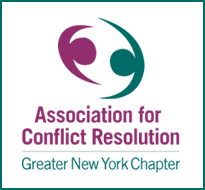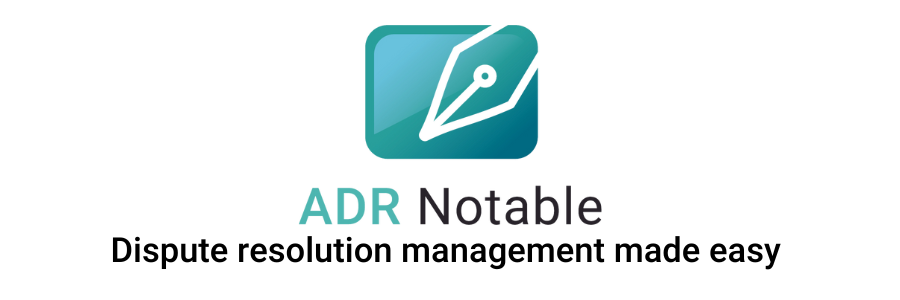|

8:30 - 10:15am (1 hour 45 minutes) Mediation and Community Building: Singapore's Grassroots Approach Beyond commercial and legal applications, mediation plays a vital role in community cohesion. Singapore’s rich cultural tapestry and close-knit neighborhoods provide a unique backdrop for community-based mediation programs. This session will dive into Singapore’s grassroots approach, illustrating how local mediation centers and volunteer mediators help resolve disputes and foster a sense of collective responsibility. We will start by examining the history and evolution of community mediation in Singapore, including the establishment of the Community Mediation Centres (CMC) under the Ministry of Law. These centers specialize in neighborhood disputes—such as noise complaints, shared spaces, and intergenerational conflicts—and use a facilitative approach that emphasizes understanding, empathy, and relationship preservation. Through selected case studies, attendees will learn about the typical lifecycle of a community mediation case, from intake to closure, and the successful outcomes achieved. An essential part of this session will be the exploration of the training and selection process for community mediators. Unlike commercial mediators, community mediators often come from diverse backgrounds, ranging from retired professionals to community leaders. The session will outline the rigorous competency-based training they undergo, as well as the mentoring and ongoing support systems that help maintain consistent standards and high-quality outcomes. AI and the Future of Conflict Resolution in the New Space Age Durée as a New Paradigm for Conflict Resolution: Harmony, Dialogue, and In-Between Spaces Yulia will present the concept of "durée" by philosopher Henri Bergson as a new paradigm for conflict resolution that offers an alternative to conventional dichotomous thinking. This idea forms the foundation of the thesis she is currently developing for her Master's degree in Conflict Resolution. Building on Yulia’s architectural thesis and combining these disciplines, she will demonstrate how the concept of durée—which describes a continuous flow of states interpenetrating each other much like musical notes—can serve as a basis for creating "in-between spaces" in mediation processes. This presentation aligns with the conference theme "Cartographies of Conflict" by proposing a remapping of the space in which conflicts exist—not as a meeting of opposing positions but as a continuous field of possibilities. Yulia will use the model of musical harmony to illustrate how conflicts can be viewed through a prism of continuity and interrelationships, rather than through binary oppositions. Exploitation in Multilevel Marketing Networks: The Costs of Joining Amway The landscape of conflict resolution can extend beyond traditional disputes to encompass the systemic and often invisible dynamics of exploitation. My proposal examines how Amway, a global multi-level marketing (MLM) organization, fosters an exploitative culture that systematically estranges individuals from their families and social networks. Through a recruitment-driven business model, emotionally charged rhetoric, and high-pressure loyalty structures, Amway creates an insular social ecosystem that pressures members into prioritizing organizational allegiance over personal relationships. This phenomenon represents a nuanced form of conflict—one that unfolds within families and communities but is shaped by larger economic and ideological forces. To illustrate these dynamics, I will use mapping techniques, network models, and visual representations that highlight the mechanisms of coercion and exploitation, revealing how MLMs like Amway systematically fracture social ties and entrench members within exploitative structures. This proposal aligns with the conference theme by reimagining conflict resolution through spatial and conceptual mapping. My proposal seeks to chart the terrain of economic and psychological exploitation within MLMs, treating estrangement as a form of social conflict that demands new frameworks for analysis and intervention. By visualizing how Amway’s business model operates as a self-reinforcing system of recruitment and indoctrination, my presentation will also propose unique approaches to addressing such conflicts—ones that recognize exploitation as a conflict in its own right. My proposal draws on dynamical systems theory and social network analysis to illuminate how MLM exploitation can be analogous to patterns of control seen in more overtly coercive organizations, such as cults. In doing so, I hope to contribute to a broader conversation about how conflict resolution practitioners can develop innovative strategies to address manipulation, estrangement, and economic coercion within contemporary social landscapes. Bridging Gaps: Public-Private Partnerships as a Tool for Social Impact and Conflict Resolution Conflict resolution is not just about mitigating disputes—it is about fostering sustainable solutions that prevent conflicts from arising in the first place. This presentation will explore how public-private partnerships (PPPs) serve as powerful tools in addressing systemic issues related to housing, community development, and social equity. By leveraging corporate resources and nonprofit expertise, PPPs can create innovative, long-term solutions for historically marginalized communities. Aligning with the Cartographies of Conflict theme, this presentation maps how organizations navigate and reimagine traditional power dynamics to forge new pathways for resolution and equity. Through case studies and Sonia’s own experience in housing advocacy and mentoring programs, this session will illustrate how these partnerships help dismantle structural barriers while fostering collaboration between stakeholders with differing priorities. Attendees will be invited to rethink the role of large institutions in conflict resolution and explore alternative methods for impactful social change. Q&A 10:25 - 11:25am (1 hour) This presentation is based on a new upcoming book that will be released soon by the three authors that cover how entrepreneurship concepts and skills will enhance your ability help you launch a successful conflict resolution business or help you in growing your existing conflict resolution business. It will provide practical steps to give you the edge you need to get your idea and concept of your business into concrete actions that can lead to a successful startup of business. The authors have done research with the leading and successful conflict resolution professionals who run successful businesses and will share their findings of what makes a successful conflict resolution entrepreneur. 11:35am - 1:05pm (1 hour 30 minutes) Redefining AI and Intellectual Property Conflicts: A Non-Adversarial Framework for Media-Tech Disputes This presentation will explore the ongoing legal and ethical tensions in the New York Times v. OpenAI (2023) lawsuit, which highlights fundamental disputes over intellectual property rights, AI-driven innovation, and the governance of generative AI models. While current legal frameworks primarily rely on litigation and adversarial processes, Francesca’s research proposes a scalable, non-adversarial resolution framework that leverages alternative dispute resolution ("ADR"), policy reform, and ethical governance to address these conflicts sustainably. Francesca’s research charts new pathways for AI-related intellectual property disputes beyond traditional litigation. Just as cartographers once mapped uncharted territories, conflict resolution practitioners must now navigate the evolving digital and legal landscapes of AI-driven content disputes. This proposed model—integrating ADR mechanisms, adaptive AI-content licensing, and ethical oversight—serves as a conceptual map for resolving similar conflicts, ensuring that both creators and AI innovators can coexist through structured, fair, and replicable resolution processes. Mapping Peace: A Practice of Hope Exploring Digital Trolling and Its Impact on Activism and Investigative Journalism in Malta How Can China Better Integrate Hong Kong as a Chinese City? This presentation will focus on the evolving conflict between Hong Kong and mainland China over the past decade, analyzing how tensions have escalated since the 1997 handover. Yao will explore how traditional conflict resolution frameworks can be adapted to the complexities of the Hong Kong-mainland China conflict, considering its deep historical, political, and cultural roots; as an example, examining how these approaches can be reimagined for Asian sociopolitical contexts, particularly by integrating technological advancements such as AI and digital communication to enhance dialogue and participation. Additionally, Yao will explore how conflict resolution strategies can better engage younger generations, who have played a central role in recent protests, by understanding their mindsets and leveraging innovative intervention methods. This topic directly aligns with the conference theme, by treating the Hong Kong-mainland China conflict as an evolving landscape that requires modernized resolution strategies. Beyond technology, Yao will examine how psychological theories—such as cognitive biases and group dynamics—can provide fresh insights into de-escalation and negotiation. By contextualizing conflict resolution methodologies for Asian settings and bridging generational divides, Yao’s research aims to chart new and more effective pathways toward sustainable peace. Q&A 1:30 - 2:45pm (1 hour 15 minutes) This program is designed to assist guardianship practitioners, attorneys and others who are involved in the guardianship world, to examine what alternative dispute resolution options there are, to resolving disputes throughout the guardianship process. The program is presented by experienced guardianship attorneys, who have dozens of years between them, in working through seemingly intractable issues and resolving them. The program will go through the entire guardianship process, from before a petition is filed, until the end of a guardianship, and examine some of the toughest issues with an eye toward best practices in reducing the litigation load on the courts, the expense of litigation and the stress on guardians and families, alike. 2:55 - 3:25pm (30 minutes) A single misstep, a viral tweet, or a leadership scandal—in today’s hyper-connected world, reputational crises can explode in minutes. Whether it’s a company caught in a PR disaster, an executive under scrutiny, or an organization facing internal backlash, how the situation is handled will determine whether it ends in lasting damage or a powerful comeback. When the stakes are high, timing, messaging, and strategic conflict resolution become critical tools in navigating public perception and restoring trust. This high-energy, interactive workshop goes beyond damage control, offering participants a deep dive into the strategies, psychology, and communication tactics that drive successful crisis management and reputation repair. Through real-world case studies, live crisis simulations, and high-stakes communication drills, you’ll learn:
This session is designed for mediators, business leaders, HR professionals, and crisis managers who need actionable, real-world techniques to handle today’s high-stakes, high-visibility conflicts. Whether dealing with a corporate scandal, workplace controversy, or leadership failure, participants will walk away with proven strategies to navigate crisis moments with confidence and precision. When everything is on the line, will you know how to respond? Join us and find out. 3:35 - 4:35pm (1 hour) We will explore how change can create conflict and how conflict requires change. Since people are hard wired to resist change, we'll review the neuroscience behind instinctual reactions from the amygdala, basal ganglia and habenula that can trigger conflict. This offers a starting point for understanding why change can be challenging. Applying change management approaches such as the power/influence-interest matrix offers a way to address or even prevent conflict that could arise. Participants will practice using the matrix in small breakout groups and then complete an action plan to increase their behavioral self-awareness and be ready for an upcoming change. |










